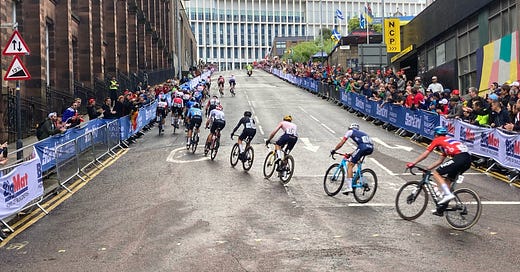In analysing the strength of his brother Louison’s rivals, Jean Bobet identified the riders of his generation as ‘aware of their rank, but never sure of their superiority’. For a long time today, the strongest riders repeatedly formed and reformed groups of esca…
Keep reading with a 7-day free trial
Subscribe to derailleur to keep reading this post and get 7 days of free access to the full post archives.




